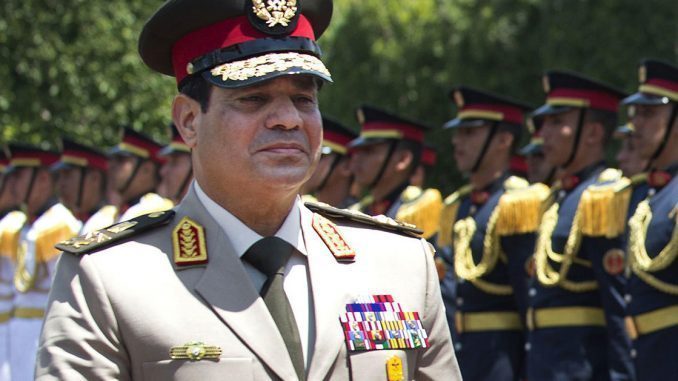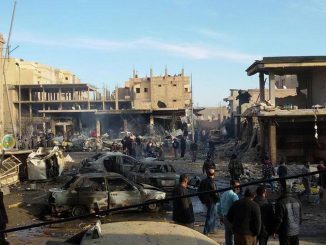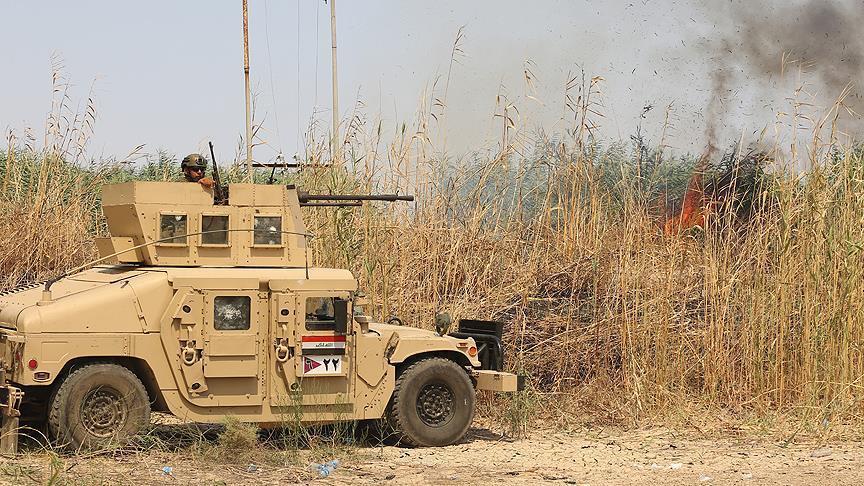
Egypt is to extend its nationwide state of emergency for three months from January 13 to help tackle “the dangers and funding of terrorism,” state news agency MENA said on Tuesday.
Last April, Egypt first imposed the current state of emergency after two church bombings that killed at least 45 people. Later, it was extended in July and again in October.
Abdel Fattah al-Sisi, who is widely expected to run for a second term in an election due early this year, issued a decree on Tuesday to extend the state of emergency.
The election date is to be announced next Monday, local media reported.
The latest extension was to allow security forces to “take (measures) necessary to confront the dangers and funding of terrorism and safeguard security in all parts of the country,”MENA reported, citing Egypt’s official gazette.
Under the state of emergency, al-Sisi has the right to restrict freedoms of assembly, movement, residency, also the right to monitor messages of any kind, newspapers, leaflets and publications, and all means of advertising before publishing them, and confiscating them, closing the places where they are printed, setting the dates for the opening and closing of public shops, and the evacuation or isolation of some areas.
Since the military coup in 2013, Egypt has been facing an Islamic State insurgency in the remote North Sinai region. Militants have killed hundreds of soldiers and policemen in recent years and have expanded to include attacks on civilians.
Sinai Province group – first emerged in 2011, and was previously known as Ansar Beit al-Maqdis- has pledged allegiance to ISIS after the declaration of their so-called caliphate across Syria and Iraq in 2014.
The militant group was responsible for weekly attacks on the army and police in Sinai. It has also claimed responsibility for dozens of attacks, including the 2015 bomb abroad a Metro Jet flight which killed 224 people, many of them Russian tourists.
Other Islamists operating in the western desert bordering Libya have also attacked security forces.
Attacks in Cairo hiked in the last two months. In October 2017, 54 security forces members were ambushed 135 km south west of Cairo.
In November 2017, Egypt also witnessed one of its deadliest-ever terrorist attacks in its modern history. Over than 300 people were killed and several hundred injured by a gang of militants inside the Rawdah mosque in Bir-Al-Abed in northern Sinai.
However the Islamic State did not claim responsibility for that attack.
In the same context, militants fired a guided missile on the airport in el-Arish, northern Sinai’s largest city on the Mediterranean in December 2017.
The missile destroyed a helicopter and killed at least one senior officer.
Significantly, the attack took place while the defense and interior ministers were present on an unannounced visit. Both escaped unharmed, but the attack indicated an unusually high level of actionable intelligence available to the militants.
Moreover, another terrorist attack, which targeted Coptic Christians, hit Egypt in the past week.
The Islamic State(ISIS)has claimed responsibility for an the attack at a Cairo church that left at least nine people dead. The claim, which was carried by the group’s Aamaq news agency, said that the attack was carried out by a “security detail”and that one of its men was “martyred” in it.
A gunman on a motorcycle opened fire outside the church and at a nearby store, sparking a shootout that killed at least nine people, including eight Coptic Christians,
The gunman was also killed, along with at least one police officer, officials said.
Egypt’s Coptic Christians have been specifically targeted by the militants, who carried out a series of bombings against churches starting in December 2016, killing more than 100 and wounding scores.
The local ISIS affiliate has claimed responsibility for all the bombings targeting Christians.



